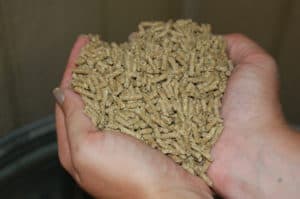
Top Reproduction Studies of 2012-’13
Two veterinarians describe recent equine reproduction studies they found interesting and influential.

Two veterinarians describe recent equine reproduction studies they found interesting and influential.

Times are changing when it comes to parasite control. Learn how to control parasites in broodmares and foals.

Learn what different semen evaluations can tell veterinarians about a stallion’s fertility.

Some veterinarians now believe that metabolic diseases likely have a negative impact on equine reproduction.

Previously veterinarians had not noted significant complications with this method of estrus suppression.

Researchers are working to better understand this potentially toxic substance that can lurk in feed.

Dr. Temple Grandin gave the keynote at the 2013 American College of Theriogenology Symposia and Conference.

Learn how equine pain might influence reproduction ability, along with how to detect subtle signs of pain.
In my 14 years at The Horse, I’ve been to a lot of veterinary meetings. (No, really, a lot of them.) But I had never

While oviduct-related fertility issues are rare in horses, breeders should be aware of what can go wrong.

Geldings can still develop problems in the reproductive tract, particularly in the accessory sex glands.

Learn how administering prostaglandins can help breeders improve their mares’ chances of becoming pregnant.

Placentitis is the most common cause of late-term abortion and remains challenging to diagnose and treat.

Dr. Chris Sanchez reviews recent top research papers published focusing on foal health.

The Society for Theriogenology’s Conference starts Aug. 7 and continues through Aug. 10 in Louisville, Ky.
Stay on top of the most recent Horse Health news with
© 2022 Copyright Statement dolor sit amet, consetetur sadipscing User Terms, sed diam nonumy eirmod tempor invidunt ut labore et dolore magna aliquyam erat, sed diam voluptua. At vero eos et accusam et justo duo dolores et ea rebum. Stet clita kasd gubergren, no sea takimata sanctus est Lorem ipsum dolor sit amet.
"*" indicates required fields